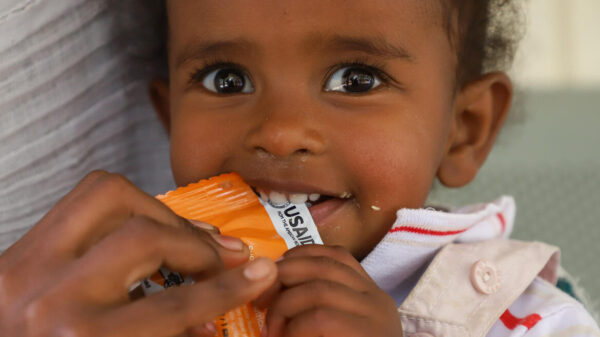WFP And UN Global Pulse Show How Big Data Can Save Lives And Fight Hunger
The research projects focused on analyzing the link between mobile phone usage and hunger. Their findings will be presented at Netmob Conference for Scientific Analysis of Mobile Phone Data at the Massachusetts Institute of Technology this week.
‘This is a new frontier for humanitarian assistance,”’ says Arif Husain, WFP Chief Economist. “As agencies begin adopting these new techniques, information collection will become cheaper and faster, making relief programmes much more responsive to the needs of hungry poor worldwide.”
The projects focused on ways in which mobile phone usage data could be analyzed to understand household hunger and vulnerability patterns. These included: a new method for estimating household expenditures on food based on mobile phone spending patterns in Africa; a technique for potentially identifying households for assistance during floods in Mexico based on mobile phone network data; and a method to quantify population mobility patterns in relation to the agricultural and livelihood cycles based on calling patterns in Senegal.
The projects completed by UN Global Pulse and WFP show that real-time information derived from mobile phone usage patterns can help humanitarian agencies pinpoint areas of acute need with a level of speed and precision that have never been achieved before.
“New technologies are leading to an exponential increase in the volume and types of data available, creating unprecedented possibilities for improving humanitarian aid,” said Global Pulse Deputy Director Makena Walker.
In particular, “big data” generated by mobile and online communications offers major opportunities to complement more traditional data sources, such as face-to-face surveys and satellite imagery, used by humanitarian agencies. The difference is that call data records offer the opportunity to do analysis in near real-time and at very low cost.
While the big data revolution offers tremendous opportunities, agencies are extremely mindful of the pitfalls that using such information sources implies.
“Protecting people’s privacy is of utmost concern as we develop these new approaches,” said Walker.
UN Global Pulse and WFP are appealing to telecommunications companies to join the effort in making this type of information available to the humanitarian community, where it would be used for the common good.
“We hope that companies, such as mobile network operators, who have this type of granular real-time data will be willing to work with humanitarian agencies to provide access to this information, with due consideration for privacy. This data can save lives,” said Husain.
# # #
WFP is the world’s largest humanitarian agency fighting hunger worldwide, delivering food assistance in emergencies and working with communities to improve nutrition and build resilience. Each year, WFP assists some 80 million people in around 75 countries.
Global Pulse is an innovation initiative of the UN Secretary-General working on big data for humanitarian action and development. Visit www.unglobalpulse.org to learn more.
For more information, contact (firstname.lastname@wfp.org):
WFP: Jean-Martin Bauer, Tel: +39 347 248 7434 jean-martin.bauer@wfp.org
UN Global Pulse: Anoush Tatevossian, Tel: +646-723-4810 anoush@unglobalpulse.org




